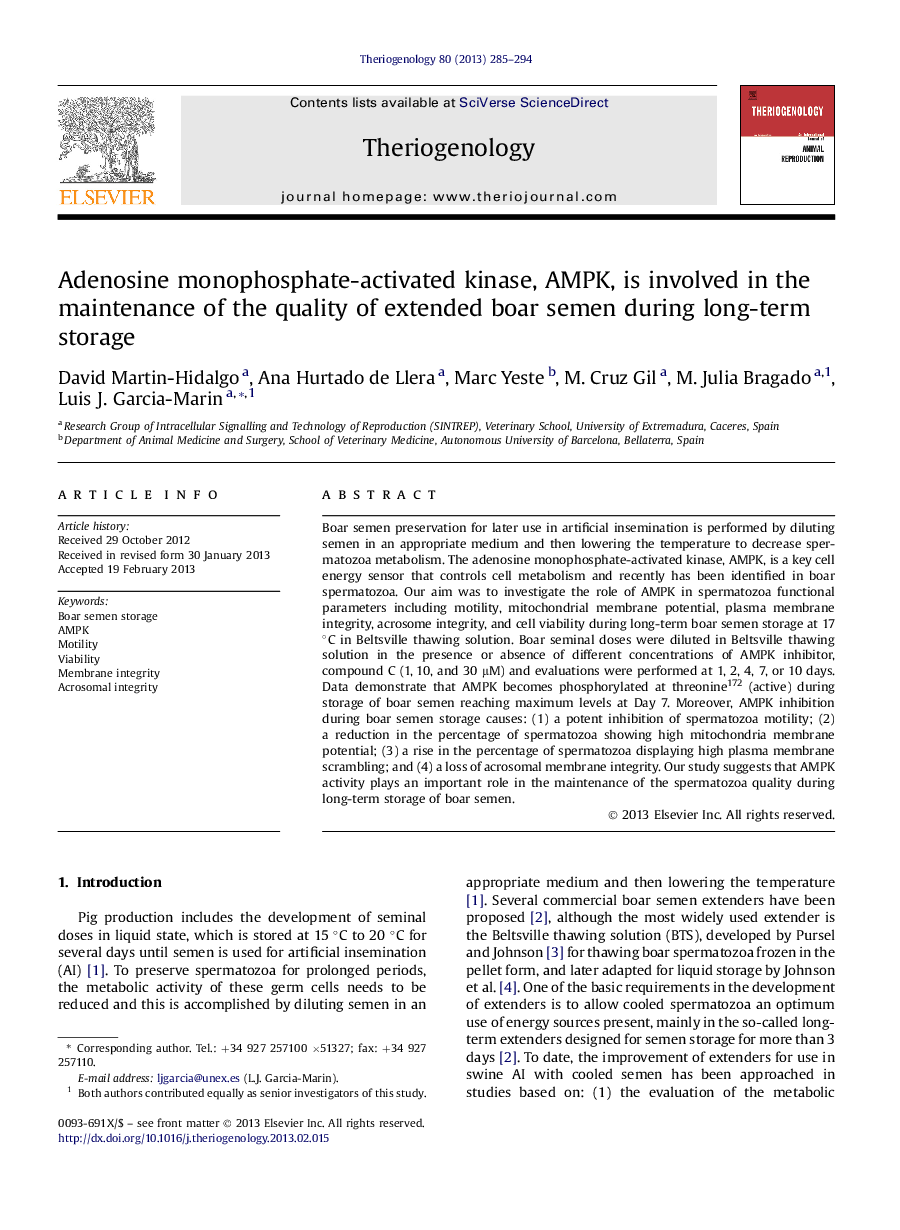| Article ID | Journal | Published Year | Pages | File Type |
|---|---|---|---|---|
| 10894432 | Theriogenology | 2013 | 10 Pages |
Abstract
Boar semen preservation for later use in artificial insemination is performed by diluting semen in an appropriate medium and then lowering the temperature to decrease spermatozoa metabolism. The adenosine monophosphate-activated kinase, AMPK, is a key cell energy sensor that controls cell metabolism and recently has been identified in boar spermatozoa. Our aim was to investigate the role of AMPK in spermatozoa functional parameters including motility, mitochondrial membrane potential, plasma membrane integrity, acrosome integrity, and cell viability during long-term boar semen storage at 17 °C in Beltsville thawing solution. Boar seminal doses were diluted in Beltsville thawing solution in the presence or absence of different concentrations of AMPK inhibitor, compound C (1, 10, and 30 μM) and evaluations were performed at 1, 2, 4, 7, or 10 days. Data demonstrate that AMPK becomes phosphorylated at threonine172 (active) during storage of boar semen reaching maximum levels at Day 7. Moreover, AMPK inhibition during boar semen storage causes: (1) a potent inhibition of spermatozoa motility; (2) a reduction in the percentage of spermatozoa showing high mitochondria membrane potential; (3) a rise in the percentage of spermatozoa displaying high plasma membrane scrambling; and (4) a loss of acrosomal membrane integrity. Our study suggests that AMPK activity plays an important role in the maintenance of the spermatozoa quality during long-term storage of boar semen.
Related Topics
Life Sciences
Agricultural and Biological Sciences
Animal Science and Zoology
Authors
David Martin-Hidalgo, Ana Hurtado de Llera, Marc Yeste, M. Cruz Gil, M. Julia Bragado, Luis J. Garcia-Marin,
